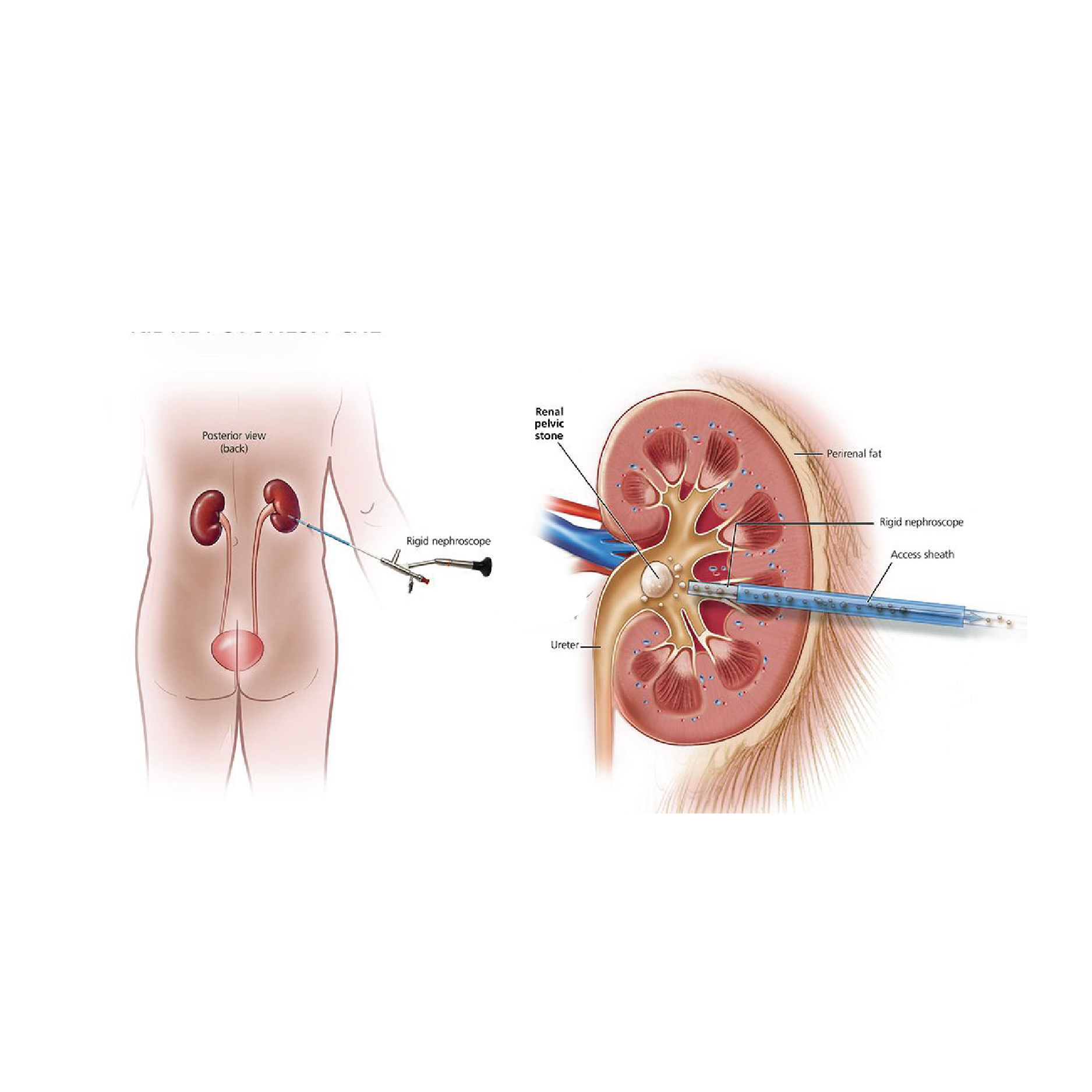Laparoscopic Kidney Surgery in Agra | Advanced Kidney Treatment by Dr. Shwetank Prakash
Call Us when you Need Help!
Laparoscopic Kidney Surgeries: Procedures, Benefits, and Recovery
Laparoscopic kidney surgery is a minimally invasive surgical approach used to treat various kidney conditions, including tumors, kidney stones, ureteral blockages, and kidney removal (nephrectomy). Using small incisions and a high-definition camera, this procedure provides greater precision, faster recovery, and minimal post-operative pain compared to traditional open surgery.

Understanding Laparoscopic Kidney Surgery
The kidneys are essential organs responsible for filtering waste and maintaining fluid balance. When kidney diseases, obstructions, or tumors affect kidney function, surgery may be required. Laparoscopic techniques allow for effective treatment with minimal scarring and faster healing.
Types of Laparoscopic Kidney Surgeries
1. Laparoscopic Nephrectomy (Kidney Removal)
- Used for cancer, non-functional kidneys, or kidney donation.
- Can be partial (removing only the diseased part) or radical (removing the entire kidney).
2. Laparoscopic Pyeloplasty (Ureteropelvic Junction Obstruction Repair)
- Treats blockage between the kidney and ureter that affects urine flow.
- Reconstructs the ureter to restore normal drainage.
3. Laparoscopic Ureterolithotomy (Stone Removal from Ureter)
- Performed when large kidney stones are stuck in the ureter and cannot be treated with ESWL or RIRS.
- Removes the stone through a small incision in the ureter.
4. Laparoscopic Kidney Cyst Removal
- Treats symptomatic or large kidney cysts that cause pain and discomfort.
- Ensures quick relief with minimal downtime.
5. Laparoscopic Partial Nephrectomy (Kidney-Sparing Surgery)
- Removes only the tumor or diseased part of the kidney while preserving healthy tissue.
- Commonly performed for small kidney tumors or localized cancer.
Who Needs Laparoscopic Kidney Surgery?
Laparoscopic kidney surgery is recommended for patients with:
- Kidney cancer or tumors that require removal.
- Blocked ureters due to stones or strictures.
- Non-functional or severely damaged kidneys due to infection or disease.
- Chronic kidney cysts causing pain or affecting kidney function.
Advantages of Laparoscopic Kidney Surgery
- Smaller incisions and minimal scarring.
- Less post-operative pain and blood loss.
- Faster recovery and shorter hospital stay.
- Lower risk of infections and complications.
- Better cosmetic outcomes compared to open surgery.
Step-by-Step Laparoscopic Kidney Surgery Procedure
- Anesthesia Administration – General anesthesia ensures a painless procedure.
- Small Incisions – Tiny keyhole incisions (5-10 mm) are made in the abdomen.
- Insertion of Laparoscope – A thin tube with a camera is used for visualization.
- Surgical Treatment – Depending on the condition, kidney tissue is removed, reconstructed, or stones are extracted.
- Closure and Recovery – The incisions are closed, and the patient is monitored post-surgery.
Recovery After Laparoscopic Kidney Surgery
- Most patients are discharged within 1-3 days.
- Mild discomfort and bloating may occur for a few days.
- Avoid heavy lifting and strenuous activities for 4-6 weeks.
- Drink plenty of fluids to aid kidney function.
- Follow-up imaging tests may be required to monitor recovery.
Potential Risks and Side Effects
Laparoscopic kidney surgery is highly safe, but some possible side effects include:
- Temporary pain or bloating after surgery.
- Mild bleeding or infection (rare).
- Temporary changes in urination as the kidney adjusts.
Long-Term Outlook After Surgery
Patients undergoing laparoscopic kidney surgery experience faster recovery and improved kidney function compared to traditional surgery. Regular follow-ups and a healthy lifestyle ensure long-term success.
Get expert laparoscopic kidney surgery in Agra with
Dr. Shwetank Prakash, a specialist in kidney tumor removal, nephrectomy, and minimally invasive kidney treatments.
Book your consultation today!
Why Choose Dr. Shwetank Prakash for Laparoscopic Minimal Invasive Surgery in Agra?
Choosing Dr. Shwetank Prakash for Minimally Invasive laparoscopic surgery in Agra ensures expert surgical care, the latest minimally invasive techniques, and a patient-first approach. Dr. Prakash is a highly experienced laparoscopic and minimally invasive surgeon, with a focus on precision, safety, and faster recovery.
- Faster recovery as minimally invasive techniques reduce downtime
- Minimal scarring due to small incisions leading to better cosmetic outcomes
- Less postoperative pain compared to traditional open surgery
- Lower risk of complications with advanced techniques ensuring safety and precision
Patient-Centric Approach
Dr. Prakash is known for his personalized treatment plans, ensuring every patient receives individualized care. His detailed consultations include:
- A clear understanding of the procedure
- Explanation of potential risks and expected outcomes
- Complete transparency to help patients feel confident about their treatment
- With a proven track record of successful surgeries and high patient satisfaction
- Dr. Shwetank Prakash is a leading expert in gallbladder and Kidney stone removal surgery in Agra.
FAQs
There are many questions about the service, we have selected frequently asked questions about this service. If you do not see your answer, please contact us.
What is minimally invasive laparoscopic surgery?
What are the advantages of laparoscopic surgery over traditional open surgery?
Smaller incisions and minimal scarring
Reduced pain and discomfort
Shorter hospital stay and faster recovery
Lower risk of infections and complications
Quicker return to daily activities
What types of conditions can be treated with laparoscopic surgery?
Gallbladder removal (cholecystectomy)
Hernia repair
Appendix removal (appendectomy)
Kidney stone and prostate surgery
Weight loss (bariatric) surgery
Gastrointestinal and colorectal surgeries
Is laparoscopic surgery safe?
How long does it take to recover from laparoscopic surgery?
Will I have visible scars after laparoscopic surgery?
Is laparoscopic surgery painful?
Do I need to stay overnight in the hospital after laparoscopic surgery?
What precautions should I take after laparoscopic surgery?
Follow the prescribed diet and medications
Keep the incision area clean and dry
Attend follow-up appointments for recovery assessment
Who is a good candidate for laparoscopic surgery?
Why Choose Us?
Are you having health problems? Contact us today!
Address Business
Contact With Us
Call Us 24/7: 81 22 22 22 22
